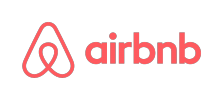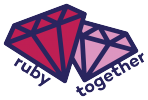Saturday, June 4 2016
San Francisco, CA
10:00am to 5:00pm
San Francisco, CA
AlterConf was a traveling conference series that provided safe opportunities for marginalized people and those who support them in the tech and gaming industries. By highlighting the powerful voices and positive initiatives of local community members, we built hope and strengthened the community’s resolve to create safer spaces for everyone.
The conferences went beyond the limited definitions and basic discussions of diversity to create a deeper, more nuanced conversation. Each conference featured a wide range of speakers delivering critical analyses of tech and gaming culture and presented their vision for what our community can be.
Speakers
Caroline Karanja
Codeswitching: What it is, why it happens, how it affects the workplace
Jamie Chung
CSS VS. My Gender: A Study In Transitions
Tilde Ann Thurium
My Gender Is Emoji Pizza Unicorn: How I Shipped Expanded Gender Options at Pinterest
We must be not only present, but critical
This was my first ever AlterConf. My initial reactions upon arriving were: “Whoa, this is the most women I have ever seen at a tech conference” and “Oooh, a sweet Patreon tote!” because I am a shill for free swag.
It seems strange to call AlterConf a conference in a conventional sense. In the best way possible, it’s unlike any other conference I’ve been to. There were no products that were being promoted, and both the speakers and attendees were much more diverse than the typical tech crowd I’m used to seeing. Everyone was also there purely to promote inclusivity, openness, and empathy within the constructs of a sometimes hostile tech industry. That’s it. (I can also confirm this fact because it was a Saturday, so no one was there to get out of work.)
For those who could not make it, here’s what you missed.
Ashe Dryden, the director of AlterConf, introduced the event. Her thoughtfulness in designing this conference was impressive. There was a sign language interpreter, live text transcription on screen, gender-neutral bathrooms, a delicious lunch selection that excluded no one, and probably thirty other details of which I’m unaware. For those who don’t know, Ashe runs AlterConf globally while maintaining a full-time job. It’s unreal the amount of time and energy she has invested into this cause thus far, and due to some serious health matters, she needs your help in making sure it continues.
Outside Looking In: Working to Reshape the Cultural Memory of Tech
Starting off the conference strong was Josh Lim, a community manager from the Philippines whose goal is to amend the Western-leaning bias of tech products and the online communities that form them. Deriving from his experience running the local Philippines Wikipedia for over a decade, Josh speaks against the ongoing systemic bias against developing countries that lies in American/European-made digital products.
As solutions to this pressing problem, he proposes companies to expand their networks, open the conversation to include more stakeholders (AKA allow people from developing countries to have a voice about the decisions you make!), and be open to changing and understanding the biases in your products.
Supporting your support: Give your support team flowers, chocolate, money, and stock options
NPM-ers Kiera Manion-Fisher and Stephanie Snopek followed Josh’s powerful talk by highlighting another group that tends to get less of a voice in vital tech decisions: the technical support team. Kiera and Stephanie pointed out several symptoms of a company disrespecting their support employees including team members not being promoted or recognized, customer feedback being ignored, and using the word ‘meritocracy’ unironically (*snaps*). They also proposed a number of potential treatments like getting to know your support team, having dedicated liaisons from other teams, and having internal tools so that the support team can resolve issues by themselves.
Why Your Diverse Workforce is Code-switching and How You Can Address It
Caroline Karanja, a social responsibility and inclusion consultant, emphasized that codeswitching isn’t inherently harmful, but it can be dangerous in a workplace where you feel the need to intentionally change how you speak in order to fit in. Like the other speakers who provided actionable takeaways, Caroline suggested companies to create an action-driven, diversity, equity (!!!), and inclusion program, conduct anonymous surveys from outside agencies, and create spaces for employees to get to know each other’s narratives.
Imagining Radical Queer Futures through Tech
Morgan Bromwell defines a ‘radical queer future’ as one in which we acknowledge the colonial impact on the way we see spaces and communities as well as one that welcomes queer PoC. One of the most interesting takeaways I have from their talk is in thinking of online spaces as physical homes. Morgan states that right now, the majority of marginalized people are currently integrated into the larger house of white tech. They urge black and brown folks to “intentionally take up space” within these online communities and to be “not only present, but critical.”
Surveying Identity: The Design of Useful Personal Data
Vikram Babu spoke about feeling as if the attributes that he inputs in surveys and sign up forms such as age, race, gender, and marital status do not define him as an individual. He likened our current method of data collection to pixelated 8-bit graphics - rather than having these abstract, blurry virtual representations of us, in the future we should see a ‘64-bit’ data representation of ourselves without resorting to simple demographics.
What Just Happened?
Many of you might have heard of Erica Joy Baker as an activist and whistleblower in the tech industry, who is known for bringing to light pay inequality at Google by releasing the data from an anonymous salary survey. In her talk, Erica told her story from the beginning, before the blog posts that garnered her thousands of Twitter followers and media attention. With vulnerability and authenticity, she discussed her struggles with mental health and being an outspoken black, female introvert (who would rather be at home under her blankets than on any stage).
Remember the pain: lessons learned from teaching myself to code
Neha Batra, a self-taught engineer at Pivotal Labs, touched on some pretty relevant topics to me. As a junior developer myself, I’m still in the cloudy, imposter-syndrome-y area of not being able to confidently call myself a software engineer. Neha urges all developers to remember the struggles of learning to code and to empathize with people who are learning. I really enjoyed how Neha allowed for a few minutes during her talk to have everyone share a story about a failure that they experienced as a developer.
My Gender is Emoji Pizza Unicorn : How I Ship
Software engineer Tilde Ann Thurium told the tale of how they were able to jump through hoops and take advantage of organizational chaos in order to change the binary gender form on the Pinterest sign up page. Their talk involved stealth, humor, and of course, a triumph after they convinced their team to open sign-up forms to include custom genders.
Engineering Empathy: Fostering an Inclusive Culture at Our Code School
As the Diversity Manager for code school DevBootcamp, Lateesha Thomas answered the question “Why do many software projects fail?” She says that it’s largely because of a lack of soft skills. She also emphasized that emotional intelligence can be taught by opening a dialogue, being receptive to feedback, and learning to take the perspective of others. Lateesha argued that by teaching empathy, not only can workplaces become more efficient when communicating, but they can become more inclusive and diverse as a side-effect.
CSS vs. My Gender : A Study in Transitions
As a lover of wordplay and metaphors, I of course enjoyed Dropbox engineer and shark aficionado Jamie Chung’s comparison of CSS transitions to their own personal gender transition. They compared how CSS and gender transitions both give an ability to focus on individual properties of a transition and both are a bit more nuanced than Wikipedia articles might say.
Fighting for Justice: Voices from Tech’s Invisible Workforce[a]
I was very excited about this talk, since it shines a light on a topic that most of tech fails to address: service jobs that effectively power the industry. Maria Fernandez, a director of both Silicon Valley Rising and Working Partnerships USA, led this panel discussion which touched on important issues such as minimum wage, unions, housing, and discrimination.
The group brought up some difficult statistics to face - in our industry, 1 in 3 Silicon Valley households do not make enough money to meet their most basic needs, including housing and food. Black and Latino Americans make up the majority of service jobs, but only 3-4% of the core tech workforce.
Beyond statistics, the personal narratives of the panelists stood out the most. Maria Guerrero, who works as a barista at Intel, told a story of how the management at her company treated her badly which resulted in her getting frequent panic attacks at work. Through her work in organizing a union, she realized that she wasn’t the only one experiencing these issues. Antonio Arenas, an employee at Hyatt for over 9 years, observed discrimination in his own workplace as well. He started a petition in order to start a coalition, but was dismissed immediately.
Maria Gonzalez is a proud janitor at Facebook, but speaks of the janitorial industry in Silicon Valley as a “race to the bottom.” While her company supports unions and treats her well as an employee, she knows many other janitors that have experienced sexual harassment, abuse, and poor wages, but are not able to speak up without repercussions.
To learn more about this issue, follow Tech Workers’ Coalition on Twitter.
Crash Through that Glass Ceiling: Strategies for Achieving Success Despite Societal Limitations
Jacquelle Amankonah then gave us a few tips on how to persevere in the face of prejudice. She encourages us to ‘take the ropes’ and to not let others define what our path should be. This, in turn, brings us the right allies who help lead us on the path that we determined for ourselves.
Last night I had a dream
AlterConf ended with a beautiful and metaphorical talk by Siobhán Cronin, a social and cognitive science researcher. She recounted a dream she had that made her question whether we create metaphorical ‘cubes’ around people in our own minds. The dream concluded with her promising to learn more about the systems that create these ‘cubes,’ which I interpreted as vowing to understand our internal biases and the systems that create them. Because I cannot do this abstract story justice, here is her Medium post with cute drawings included.
If I could summarize the themes of the day in a sentence, it would be for us as a community to be more observant about systemic bias (especially our own ignorances) and to continue to fight for a more inclusive and equitable future within this field. As Morgan Bromwell said in their talk, we must be not only present, but critical.
Local Team
Sponsors
© AlterConf | Code of Conduct, Accessibility, & Etiquette
























